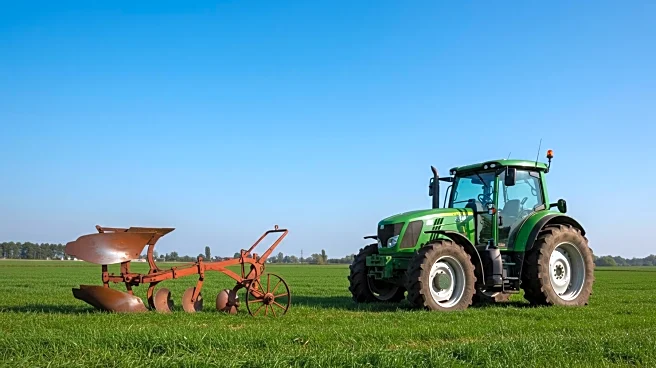What's Happening?
Rashtriya Swayamsevak Sangh (RSS) chief Mohan Bhagwat emphasized the importance of integrating modern technology with traditional farming methods to achieve self-reliance in Indian agriculture. Speaking at the 28th foundation day of the Jyeshtha Pashuvaidya Pratishthan, Bhagwat highlighted the potential benefits of combining Western technology with indigenous farming and animal husbandry practices. He noted that such a synergy could enhance the productivity and sustainability of Indian agriculture. The event also recognized the contributions of agriculturists and veterinary graduates, awarding titles such as Ideal Farmer and Outstanding Veterinarian. Bhagwat underscored the historical significance of traditional veterinary practices, citing ancient expert Shalihotra's work on equine science as a source of national pride.
Why It's Important?
The call for blending traditional and modern agricultural practices is significant in the context of global uncertainties affecting food security. By promoting self-reliance, India can reduce its dependency on external agricultural inputs and technologies. This approach could lead to increased confidence in indigenous methods and cattle breeds, potentially revitalizing rural economies and preserving cultural heritage. The initiative aligns with broader efforts to modernize agriculture while maintaining ecological balance, which is crucial for sustainable development. Stakeholders in the agricultural sector, including farmers and policymakers, stand to benefit from improved productivity and resilience against market fluctuations.
What's Next?
The integration of modern technology with traditional farming practices may lead to policy shifts and increased investment in agricultural research and development. Stakeholders, including government agencies and agricultural institutions, might focus on creating frameworks to support this transition. The recognition of contributors in the field could inspire further innovation and collaboration among farmers, scientists, and educators. As confidence in indigenous methods grows, there may be a push for more localized agricultural solutions, potentially influencing national agricultural policies and international trade dynamics.









